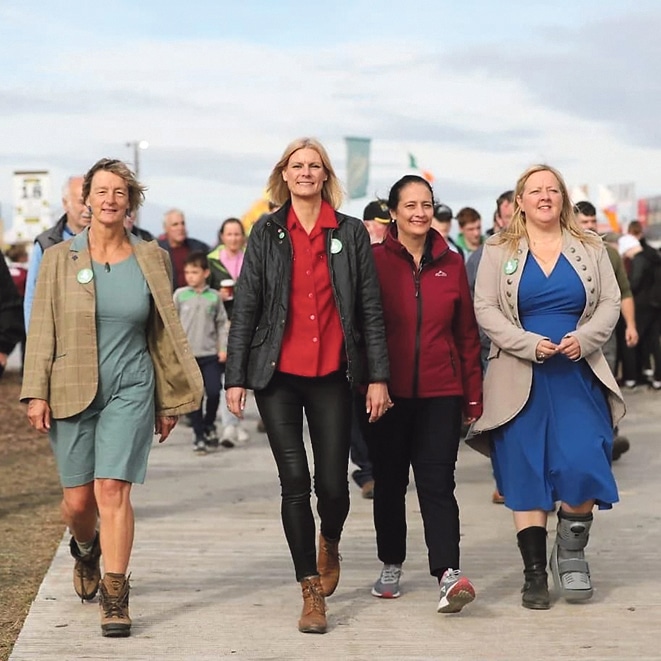Described in chaos theory, the butterfly effect is the sensitive dependence on initial conditions of non-linear systems, in which a small change can result in large differences at a later time and even in a different place.
Explaining this, the mathematician and meteorologist Edward Norton Lorenz used the metaphorical example of a tornado being influenced by minor perturbations such as a distant butterfly flapping its wings several weeks earlier.
In 2015 Volkswagen were caught cheating the system and eventually admitted that some 11 million clean diesel cars sold worldwide contained ‘defeat devices’ meant to fool regulators.
The cars contained sophisticated software, to detect whether the car was being driven on the road or being tested on a treadmill. When it was being tested the software switched on the pollution controls. The rest of the time, the pollution controls were switched off.
While diesel cars get better mileage and emit fewer carbon-dioxide emissions, they also emit more nitrous oxide (N2O), which not only helps to form smog and particulate matter which can damage lungs, but also stays in the atmosphere for an average of 114 years.
In addition the impact of one pound of N2O on warming the atmosphere is almost 300 times that of one pound of carbon dioxide and globally, about 40 per cent of total N2O emissions come from human activities.
Human-caused climate change has warmed the planet by about 1.2 degrees Celsius to date according to the Global Warming Index run by researchers from the Environmental Change Institute at the University of Oxford. This has caused some types of extreme weather to become more frequent and more intense, particularly extreme heatwaves and record-high temperatures
Now let me take a quick segue to Syria – 2009.
In 2009 the UN was reporting that Syrian farming families were migrating into the cities. The Syrian Ministry for Agriculture and Agrarian Reform’s estimated in July 2009 that 60,000 families had migrated, mainly to Damascus, Aleppo and Homs. This massive migration was caused by desertification due to climate change; and because the cities could not handle this in-pouring of people, overcrowding of housing, unemployment and social unrest followed. By 2013 youth unemployment in Syria was at 48 per cent and there was a 49 per cent drop out of education, all of which contributed greatly to unrest and calling for a change in government and eventually in March 2011 escalating to an armed conflict and millions of people fleeing their homes after protests calling for Assad’s removal were violently suppressed.
Stay with me as we fit the jigsaw together and look at how the cultures that we accept…or create in our businesses have had a butterfly’s wing effect across the world.
Desertification, as happened in Syria is happening across much of the world as a result both of climate change and destruction of ecosystems.
The term desertification centres on human-caused land degradation in areas with low or variable rainfall known as drylands, which account for more than 40 per cent of the world’s terrestrial surface area. The pace of desertification has accelerated and now according to the United Nations, is 30 to 35 times the historical rate. It is driven by urbanisation, mining, farming, and ranching, all of which clear away trees and other vegetation, increasing the risk of drought, soil erosion and an inability for the land to retain water or replace vegetation.
In the past few years, not only the Arab drylands but Western Europe and central and eastern China have also been suffering record-breaking heatwaves, droughts and water use restrictions causing crop failures and thus adding to rising costs of food around the world.
The flooding in Pakistan is the latest in a sequence of exceptional disasters in the Northern Hemisphere affected by climate change, extreme heat and drought being followed by monsoons and unprecedented glacial melt killing over 1500 and displacing and estimated 30 million people.
I am not for one minute suggesting that VW caused the Syrian crisis, or has by itself created climate change however, link the action of VW’s increased emissions of nitrous oxide, known to have such an impact on warming of the atmosphere, thus adding to desertification and leading to migration, social unrest and war; the dominos just keep falling.
I am suggesting that as global citizens, many of us working in, or with, trans-continental corporations, we have a responsibility to look at the bigger picture when we look at the culture inside the business’s we are working in.
Volkswagen’s values included ‘sense of responsibility’, ‘respect’, ‘co-operation’ and ‘trust’. I wonder how many of us who have similar sentiments written into our company values could, hand on heart say, “the culture in my business is such that this could not have happened”.
António Guterres, secretary general of the UN recently spent two days in Pakistan’s flood-ravaged areas.
His observation? “I have seen many humanitarian disasters in the world, but I have never seen climate carnage on this scale.”
The floods are made worse by the more than 7,000 glaciers flowing into Pakistan and melting as the earth warms, adding to the floodwater.
According to NOAA, the National Oceanic and Atmospheric Administration: “If all human emissions of heat-trapping gases were to stop today, Earth’s temperature would continue to rise for a few decades as ocean currents bring excess heat stored in the deep ocean back to the surface. Once this excess heat radiated out to space, Earth’s temperature would stabilise. Experts think the additional warming from this ‘hidden’ heat are unlikely to exceed 0.9 degrees Fahrenheit (0.5 degrees Celsius). With no further human influence, natural processes would begin to slowly remove the excess carbon dioxide from the atmosphere, and global temperatures would gradually begin to decline.”
How we uphold our company values not only affects how the market perceives us but can also have far-reaching affects across the globe and into the future.


